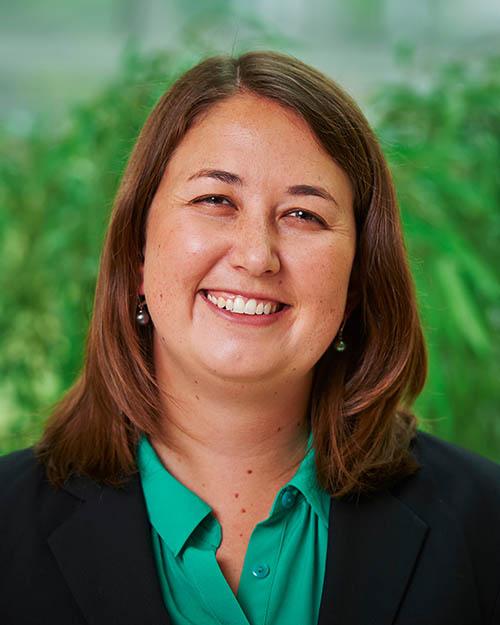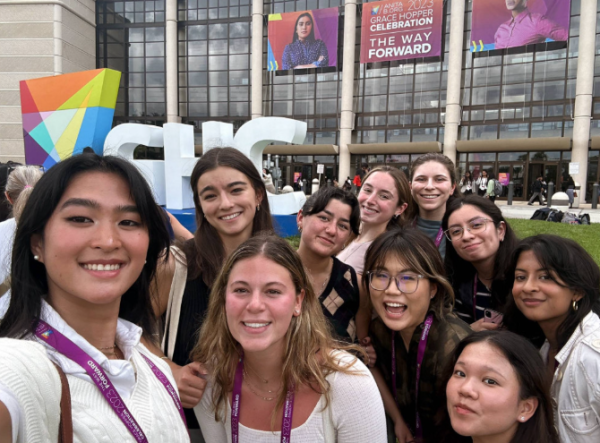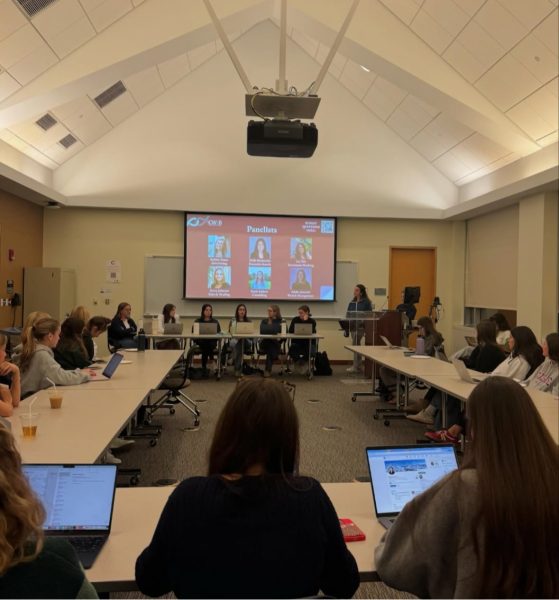Jennifer Tomlinson: A Scholarly Look at Love and Friendships
During a time in which their lives consist of family units, masked interactions and staying six feet apart from others at all times, 18 first-year students join Professor Jennifer Tomlinson this fall in a deep dive into relationships. In her First-Year Seminar (FSEM) 139: The Science of Relationships, students study the close relationships that are central to their lives – romantic partners, friendships, families, to name a few–and the influence these have on their thoughts, feelings, behaviors and personal growth.
Tomlinson, an Assistant Professor of Psychological and Brain Sciences, has taught at Colgate since 2013. She has studied relationships since stumbling upon the topic as an undergraduate at the University of Rochester and conducts research on the many questions surrounding how and why relationships form and the importance of these types of human connections.
“I love studying relationships, and I think they’re pretty much the most important thing that you could study,” Tomlinson said. “There are a lot of studies that support that idea that relationships are really important to our health and well-being, and if we don’t have [them], there are negative impacts, and so I think it’s just really fun to get to learn more about people’s relationships and think about what makes them work and what doesn’t work.”
One key theme of Tomlinson’s research and teaching is self expansion, or the idea that we grow and become more developed people through relationships. The self-expansion model is a theoretical framework she uses in her research, which informs her classes as a main theme explored by students, considering the ways in which relationships change people, push them to try new things, experience challenges and lead to growth. In Tomlinson’s FSEM and upper-level class on close relationships, students focus on the role relationships play in one’s growth at Colgate and beyond.
“Relationships are important, and it’s worth taking the time to invest in them and to develop close relationships with your classmates, with people that you meet on campus, but also with professors and other people,” Tomlinson said.
This theme is particularly relevant to her first years, she says, as there is so much growth that happens in one’s first semester of college. The class, which fulfills the Scientific Perspectives core distribution requirement, begins by looking at studies about attraction, developing closeness and why relationships form. They then get into the “dark side” of relationships, discussing conflict and jealousy. But the positives are explored too, such as communication, how to maintain relationships over time and “keeping the spark alive.”
“I think it’s important for people to know what makes a good relationship and to think about how you can have better relationships, so I think that’s kind of a neat thing for [first-years] to do,” Tomlinson said.
In a conventional year, the class would go to the high ropes course to experience self-expansion through team building and learning to rely on other people. But for now, this will have to happen in a way that complies with this semester’s new Covid-19 restrictions, doing activities in the outdoors in a socially-distant manner. Additionally, the class will conduct research of their own through surveys, focusing on relationships between roommates.
“Hopefully, we will all be able to contribute to the science of relationships as well.”
One of the key messages Tomlinson hopes students will take away from her class is to seek out close relationships, to be supportive and responsive to one another.
“Make sure that you have at least one close friend that you can turn to and have one faculty or staff member that you can turn to,” she said. “I do think investing in those relationships is really important, and it’s something we do well at Colgate.”
Ellen Lawrence is a senior from Chicago, IL studying philosophy, political science and the Middle East. She previously served as the paper’s Senior Editor...











